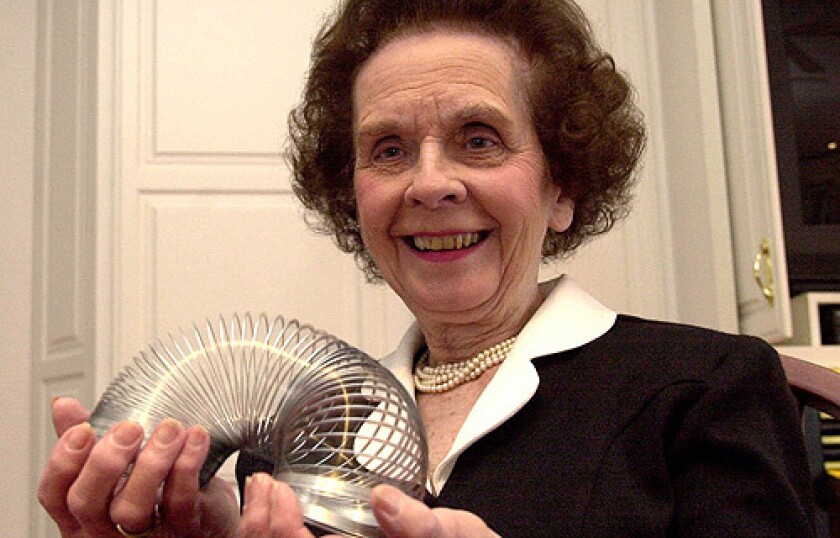When we see this coiled up stack of plastic or metal, most of us have fond memories of childhood, watching said contraption slide between steps, tables and other surfaces with ease as it twisted and bent to form. Most people couldn’t tell you when it first came out, or even when and where they they had first seen it, but almost everyone could tell you that it was old, given how simplistic and unassuming it was and that it was called the Slinky. The Slinky, a children’s toy that has been around since most of our grandparents were children, is the toy we are talking about, and it has our attention because it has Hollywood’s attention. Now, Director Tamra Davis, Director of cult classics Billy Madison and Half Baked, is set to make the toy a star: Davis is set to direct a film about the 1940’s toy titled Slinky, using the toy to tell the story behind the woman who was responsible for its notoriety, Betty James.

To be exact, the Slinky was invented by Richard James, husband to Betty James, in 1943, but not to much fanfare. It was not until her husband had more or less given up on the toy, having abandoned the family and left Betty with her children to survive. As a result, Betty took the reins of the company during a time women did not have much business prowess, and as a result made the Slinky the toy it is today. Since then, the Slinky has become one of the most popular toys on the planet and virtually ubiquitous with the phrase toy, having been at least used in some capacity by virtually every generation of children throughout the country for over half a century except for maybe the latest as they’ve replaced toys with tablets, and becoming synonymous with toy culture in the United States. This was not with ease however, as the 1960’s were a time of male-dominance, yet the Women’s Liberation Movement of the time period certainly helped James hold her footing. The upcoming film looks to capture just the aspect of the toys meteoric rise to fame, discussing the toys origins and the vision Betty James had for it originally, the resurgence it saw in the 1990’s with help from the film Toy Story, and much, much more.

Some could argue that Davis’ telling of James’ story is a form of therapy, having experienced the grip of patriarchy long after James thought she had it conquered. Davis was originally penned to direct Mean Girls and ultimately replaced by a man, just to go on to direct Billy Madison which would become a classic just as much as the former has. Similarly to James, Davis did not allow this to stop her vision – if anything, it furthered it. Now, Davis’ resume spans from films like Billy Madison and Half Baked to television shows such as Grey’s Anatomy, along with countless music videos and other smaller features, illustrating how meaningless the job of Director for Mean Girls ultimately was in the span of her career, and how one incident does not define you. At least in the case of Tamra Davis or Betty James, they did not let one incident define them; now, they both live in history and Davis’ coverage of James’ story only takes that a step further.






